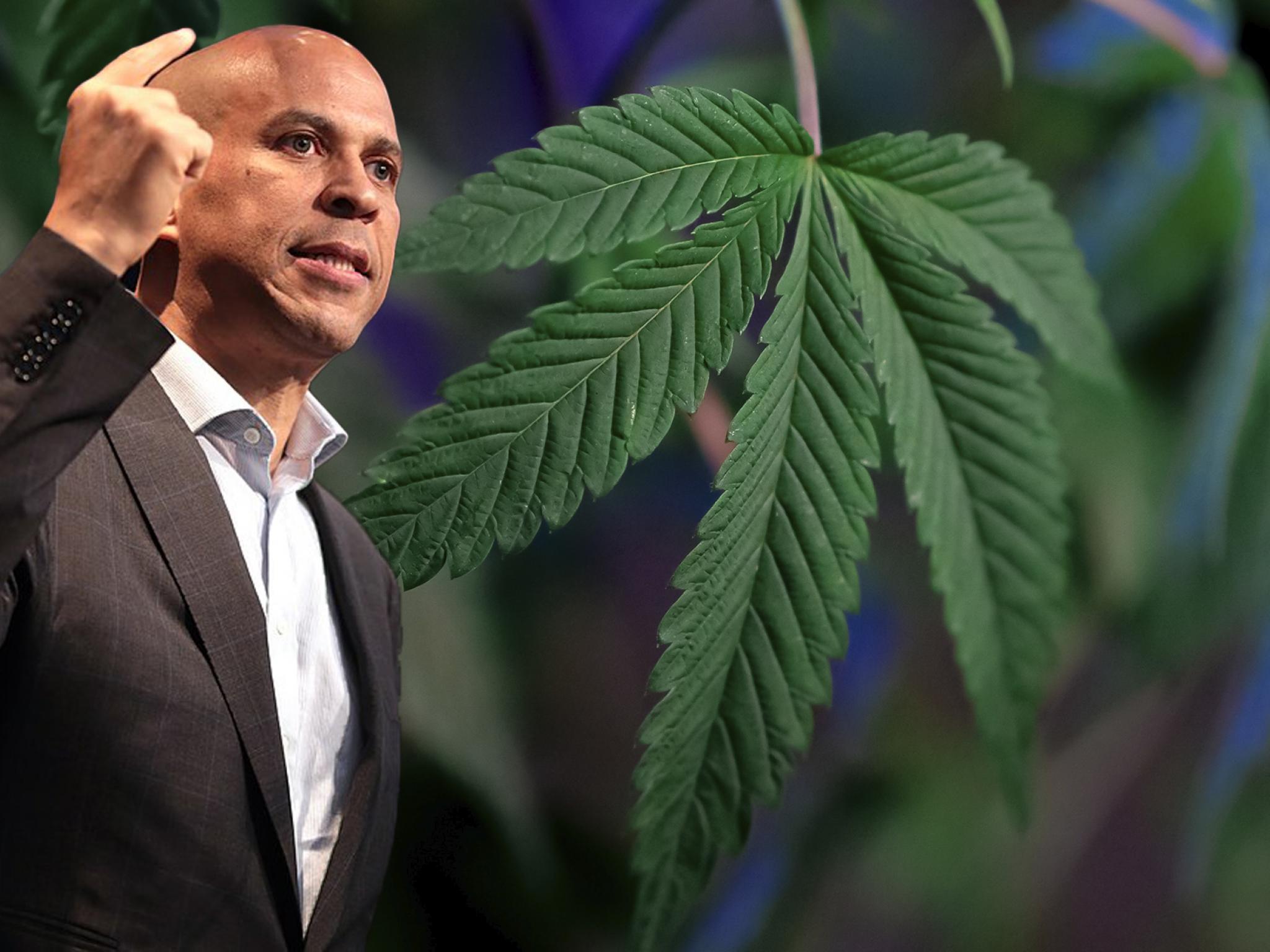
The Senate Judiciary Subcommittee on Crime and Terrorism, chaired by Sen. Cory Booker (D-NJ), held a hearing on Tuesday titled “Decriminalizing Cannabis at the Federal Level: Necessary Steps to Address Past Harms.”
The meeting came on the heels of last week’s presentation of a long-awaited marijuana bill — the Cannabis Administration And Opportunity Act (CAOA) — which would decriminalize and deschedule cannabis on the federal level, while also promoting social equity. Booker sponsored the bill, alongside Senate Majority Leader Chuck Schumer and Senator Ron Wyden (D-OR).
The hearing tackled many important issues in regards to federal cannabis legalization, but it wasn’t an actual debate on the bill, as the subcommittee has yet to vote on the CAOA.
Booker started the Senate hearing on cannabis urging for the end of the federal ban on marijuana, claiming “Federal cannabis prohibition has failed,” reported MSN.
Booker cited evidence that cannabis' current classification as a Schedule 1 drug caused many harms.
“It has failed to make our communities safer, it has failed to reflect modern science and contemporary values across the political spectrum, and it has miserably failed our most vulnerable people in America,” Booker said. “Really, it’s inflicted a lot of damage upon the families within our country.”
Others Disagreed
Senator Tom Cotton (R-AR) challenged Booker’s claims that the federal ban on cannabis has disproportionately affected Blacks and other minorities.
“The marijuana legalization movement is plagued by misinformation, much of which somehow found itself into the chairman’s opening statement,” Cotton said. “Federal marijuana laws are not a racial justice issue and federal prisons are not filled with low-level, non-violent drug possessors.”
Former Associate Deputy Assistant U.S. Attorney General Steven Cook also argued that there’s no racism in the criminal justice system and that the law enforcement was mainly focused on large-scale drug trafficking, instead of personal use.
“Unfounded allegations that the criminal system is systemically racist are destructive,” Cook said. “They undermine the public confidence in the best criminal justice system in the world and they foster division at a time when our nation desperately needs leaders who do the opposite.”
The System Is The One To Blame
Dr. Malik Burnett, medical director for the Center for Harm Reduction Services at the Maryland Department of Health, noted that this is more of a “systematic racist problem.” Kids from low-income communities are often not able to afford lawyers or other resources if police implicate them. “This is the system and the way it’s designed,” Burnett said.
Annapolis, Maryland Police Chief Edward Jackson agreed with Booker, saying: “Around the country, people — including police — are realizing that there is nothing inherently violent about selling, possessing, or using cannabis; prohibition is what fuels violence and crime, not cannabis,”
“All these impacts of cannabis prohibition have fallen particularly hard on communities of color because cannabis laws are only enforced in certain neighborhoods,” he said.
The Need For SAFE Banking Act Is Clear
During the hearing, another bill, which many industry experts believe has the most chances of reaching President Joe Biden's desk, the Secure and Fair Enforcement, or SAFE, Banking Act was also discussed.
So far, the SAFE Banking Act has managed to pass the U.S. House six times in the last three years, and lately, Senate has been under a lot of pressure to approve it.
A hearing on this act is scheduled on Capitol Hill on Wednesday, featuring the congressional supporters and people from the industry who are at risk of robberies because operating mainly in cash. Among those who will speak is Dennis Brown, who lost his son in March during a robbery at the dispensary he worked for.
While Booker is against the passage of the SAFE Banking Act on its own, because of fear of not handling restorative justice after that, Burnett confirmed during the hearing that “the need for legislation like the SAFE Banking Act is clear.”
After the hearing, Booker told NJ Advance Media that he was discussing with other lawmakers legislation that contains both SAFE Banking and restorative justice.
“I’ve always understood the urgency of SAFE Banking, but strategically I want folks to know that if we just do SAFE Banking we may never see restorative justice things, at least not in the short term,” Booker said. “The ability to get SAFE Banking, combined with restorative justice principles, is to me an achievable effort.”
Photo: Benzinga Edit; Sources: Gage Skidmore by Commons and Kindel Media by Pexels







